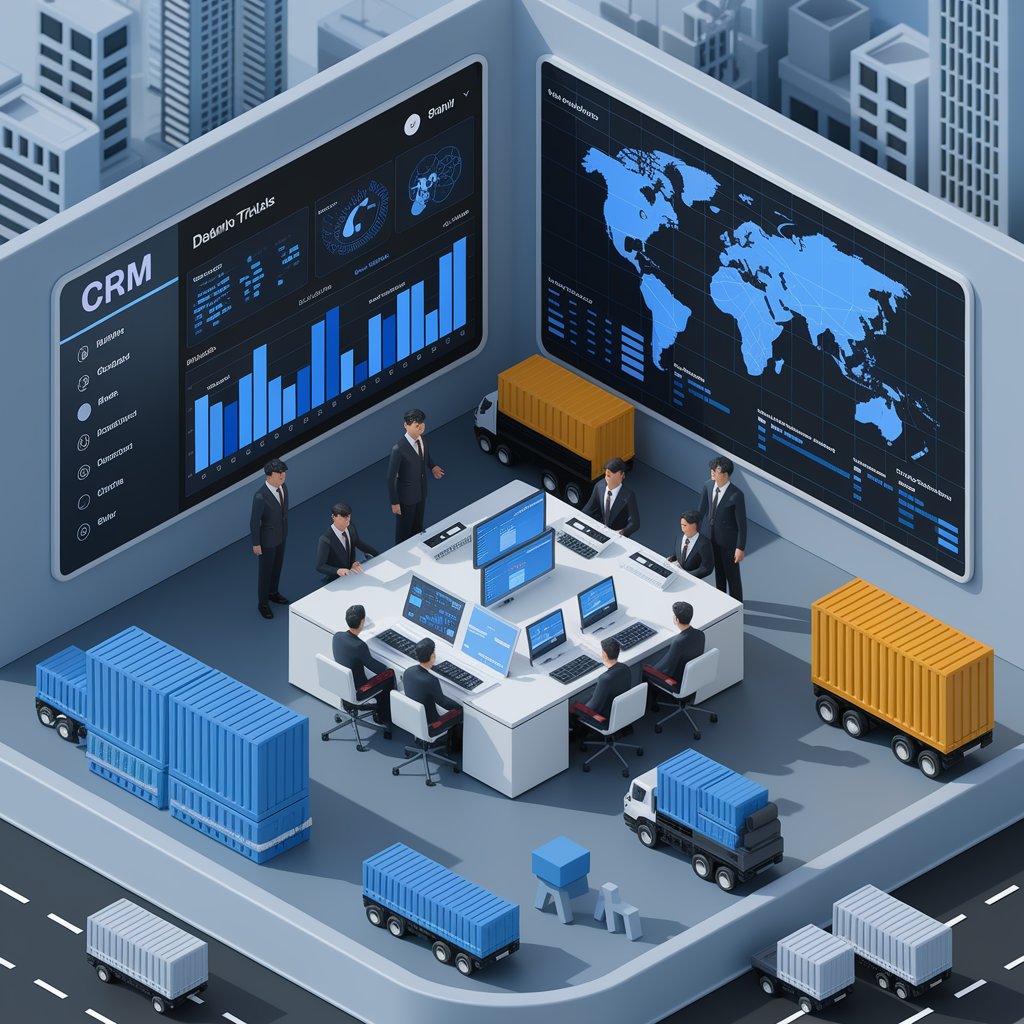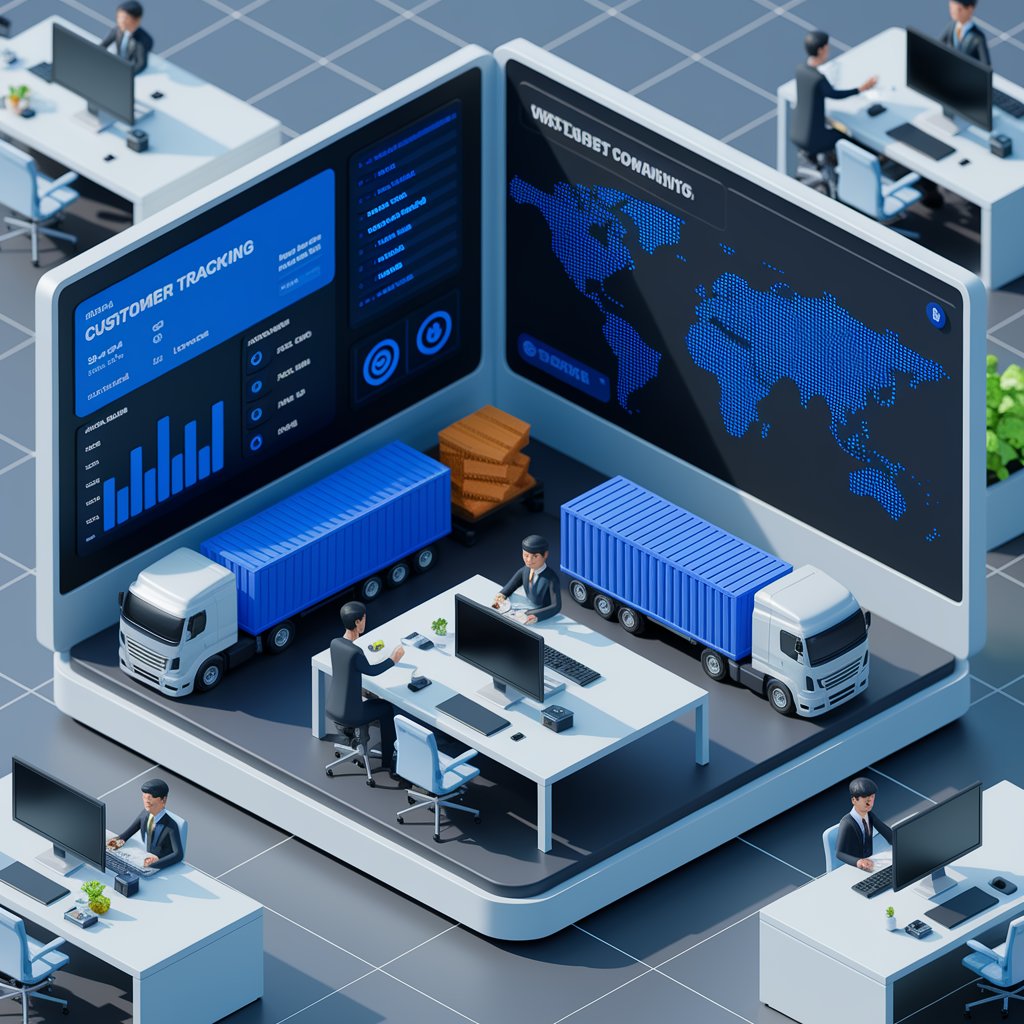CRM Shipping: Streamlining Logistics with Smart Customer Management
Whether you're handling domestic deliveries or coordinating global supply chains, a shipping CRM can help you reduce manual tasks, improve customer satisfaction, and scale your business with precision.

What Is a Shipping CRM?
A CRM for shipping companies is a software solution that centralizes all customer-related data, communications, and processes across the logistics lifecycle. Unlike general CRM platforms, a shipping CRM is tailored to meet the specific needs of the logistics sector — from quoting and booking to shipment tracking and client service.
💡 Imagine managing leads, automating quotes, monitoring deliveries, and communicating with clients — all in one place.
Who Needs It? (Spoiler: Everyone in Logistics)
Shipping CRMs are essential for:
- 🧑💼 Freight Forwarders
- 🚚 Logistics Providers (3PL/4PL)
- 🏢 Shipping Companies
- 🤝 Freight Brokers
- 🌍 Global Trade Coordinators
Each of these professionals benefits from the same core need: better visibility, faster response times, and a seamless customer experience.

CRM Shipping vs. Traditional Methods
Traditional Process | CRM-Enhanced Process |
Manual spreadsheets 📄 | Centralized dashboards 🖥️ |
Reactive customer service ⏳ | Real-time communication 📲 |
Data silos 🔒 | Integrated systems 🔗 |
Missed follow-ups 🚫 | Automated reminders 🔔 |
If you’re still relying on email threads and sticky notes, you’re leaving money on the table. 📉
Business Benefits of CRM in Shipping
A well-implemented shipping CRM leads to:
- 🚀 Improved Sales Efficiency: Faster quoting and shorter sales cycles
- 😊 Better Customer Experience: Proactive updates and personalized service
- 🔁 Retention and Loyalty: Maintain relationships with past clients
- 🔍 Data-Driven Decisions: Use metrics to refine operations
- 💰 Increased Revenue: Maximize conversion and minimize churn

Key Features of a Shipping CRM
Here are the core features that make a shipping CRM indispensable:
Feature | Benefit |
📋 Client & Quote Management | Track inquiries, automate quotes, win more business |
🛰️ Real-Time Shipment Tracking | Keep customers updated with integrated visibility |
💬 Multi-Channel Communication | Centralize emails, chats, and calls |
📊 Analytics & Reporting | Gain insights into customer trends and sales performance |
🔗 Integrations | Connect with TMS, accounting, and carrier APIs |
With these features, you’re not just managing relationships — you’re building smart, scalable logistics workflows.
How to Choose the Right Shipping CRM
Look for a solution that offers:
✅ Industry-specific tools for logistics and freight
✅ Customizable quote and client workflows
✅ Integration with your shipping and ERP platforms
✅ Scalable pricing models for small to large teams
✅ Support, onboarding, and mobile access
A generic CRM might suffice, but a shipping-specific CRM will empower your business to grow without compromise.

Real-World Use Case
Let’s say you’re a mid-sized freight forwarder handling 200+ shipments per month. Without a CRM, your sales team manually processes inquiries, and operations rely on Excel.
With a shipping CRM:
- You respond to quote requests in minutes, not hours
- Your team gets alerts for upcoming customer follow-ups
- Clients receive real-time updates on shipment status
- You increase your win rate and reduce churn
That’s the power of going from manual to intelligent logistics.
Final Thoughts
In the shipping industry, time is money and trust is everything. A CRM shipping system helps you deliver both. By organizing customer data, automating workflows, and improving communication, you’re not just shipping goods — you’re delivering service excellence. 💼🚛
🌟 Start transforming your logistics business today with the power of a shipping CRM.
